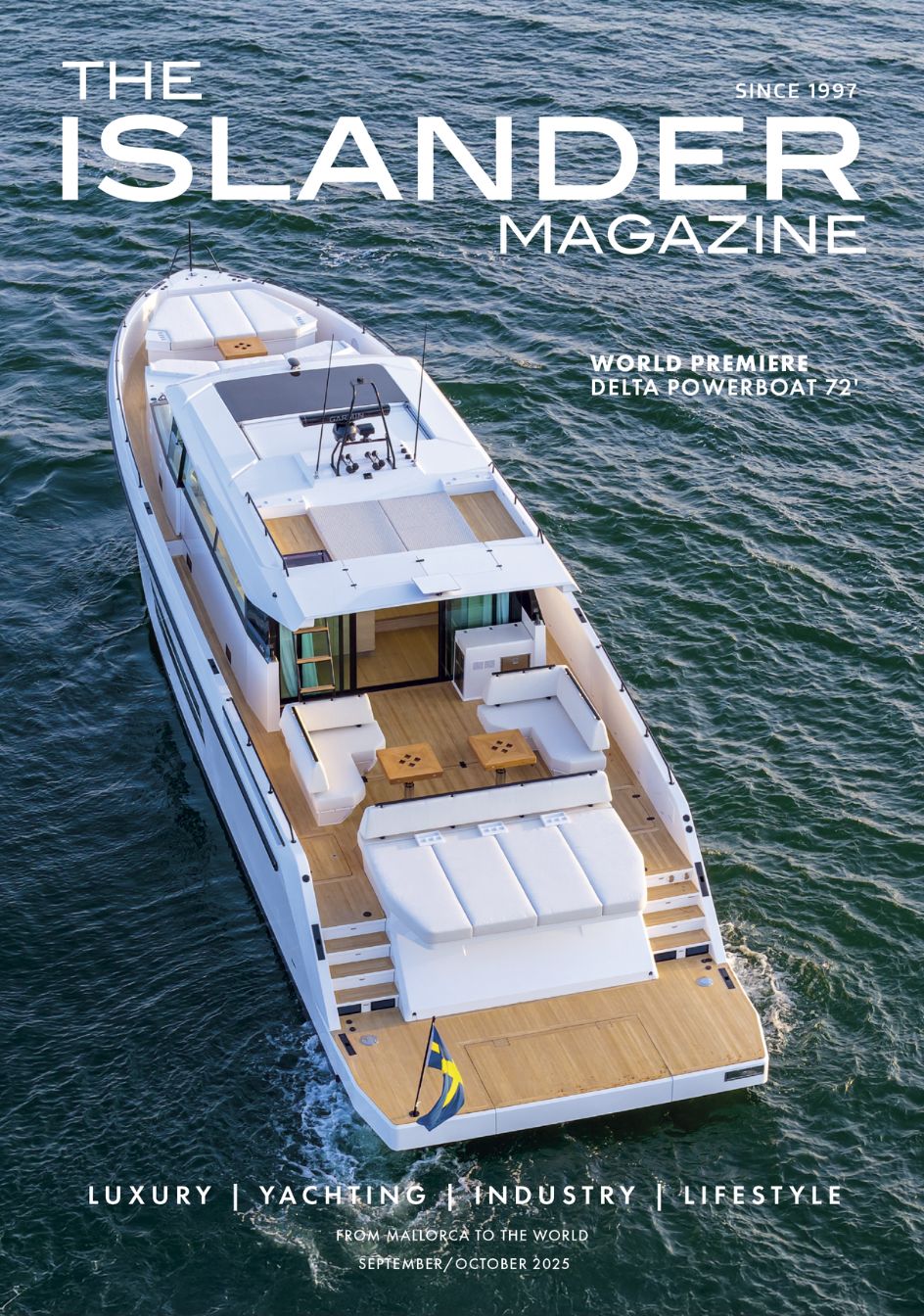Algeria is an emerging destination for yachts seeking high quality, low-sulphur, cheap bunkering (0.60 Euro/litre) and clearance out of the EU for TPA/VAT purposes. At just 160nm sailing from Palma, Algeria is also conveniently positioned to provide these services. One agent consulted by EOS Risk Group estimates that around 70 superyachts are now calling at Algerian ports each year.
However, questions over security and calls at dusty commercial ports without dedicated yachting facilities leaves cause for deliberation. Is Algeria’s commercial appeal offset by inherent security risks? Or is this widely-held concern an outdated legacy of the Algerian Civil War? We take a look…
Algeria Country Overview
Algeria is a country in the Maghreb region of North Africa. Its landmass makes it the largest country in Africa and the 10th largest in the world. The country shares borders with Tunisia, Libya, Morocco, Western Sahara, Mauritania, Mali and Niger and has a long coastline along the Mediterranean Sea. Algeria has a population of around 42.2 million, around 90% of which live in the northern coastal belt. 99% of Algerians adhere to Sunni Islam. Due to its heritage as a French colony (independence was achieved following the Algerian War of Independence in 1962), French is spoken by around two thirds of the population. Three quarters speak Algerian Arabic while a quarter speak Berber.
Algeria’s economy, the third most important in the Middle East and North Africa (MENA) region, is based on exports of oil, natural gas and related products and is dominated by the state. The hydrocarbon sector is responsible for 30% of gross domestic product (GDP) and over 95% of export earnings. Sonatrach, the national oil company, is the largest company in Africa. According to World Bank analysts, the Algerian economy is expected to slow down in the medium term, largely due to the moderation of hydrocarbon production. Algeria has achieved 20% poverty reduction in the last two decades, but unemployment rates, particularly among the educated youth, remain high at around 11.7%.
Corruption and nepotism remain serious obstacles for doing business in Algeria; the country ranks 105/180 on Transparency International’s 2018 Corruption Perception Index and 157/190 on the World Bank’s Ease of Doing Business 2019 rankings.
The country has the largest defence budget in Africa and buys the majority of its military equipment from Russia.
Political Risk
Whilst being a beacon of stability comparative to some of its regional neighbours, Algeria’s political risk outlook is less than perfect. Algeria has been described as a “controlled democracy” and Freedom House rates Algeria’s political freedom status as “Not Free”.
Political stability in Algeria has decreased in the last three years. Protesters took to the streets across Algeria, starting February 2019, to denounce President Bouteflika’s decision to run for a fifth term in the April 2019 elections. They were described as Algeria’s most significant protests since 2011. Demonstrators opposed Bouteflika’s candidacy due to his poor health and a belief that he is merely a puppet used by le pouvoir (the power), a name used for Algeria’s military and civilian elite. Bowing to significant pressure from Algeria’s public, President Bouteflika resigned from his post on 2nd April 2019. Despite Bouteflika’s resignation, nationwide protests continued, demanding fundamental changes in political leadership, entrenched in power for the last 57 years. Hundreds of thousands of activists are demanding a free and fair election before the end of the year, but are likely to continue protests if polling is organised by the ruling elite.
Civil unrest has gripped much of the country in 2019, especially in major cities along the Algerian coastline such as Algiers, Relizane, Bouira, Tizi Ouzou, Constantine, Bejaia, Bordj Bou Arreridj, Mostaganem, Oran and M’Sila. Protests are commonly organised after Friday prayers, but can occur at any time, typically around government buildings, major squares, major road arteries and university campuses. Port workers have sometimes shown solidarity with protesters by enacting 24-48 hour strikes.
Terrorism
Al Qaeda in the Islamic Maghreb (AQIM) and Islamic State of Iraq and the Levant (ISIL), as well as several affiliate organisations, are the most notable groups operating in Algeria. Both groups’ capabilities have been severely hampered by aggressive and effective Algerian counter-terrorism operations in the last four years. Since 2014, government security forces have recorded the killing or capturing of several hundred AQIM fighters and the disruption of numerous ISIS-affiliated cells.
Indeed, in January 2018, Akram Kharief, an Algerian journalist and security expert, stated that “AQIM in Algeria is to all intents finished. In the past few years the Algerian army has inflicted heavy losses on AQIM, which was forced out from Kabylie region. There remain some groups scattered across the country, especially in Jijel, Skikda and Tébessa, but with very limited if any capability.”
Positively, Algeria experienced no major terrorist attacks in 2018, the first time in nearly 3 decades. The most recent attack against a Western citizen occurred in September 2014 when an ISIS-affiliated group abducted and beheaded a French citizen in a remote area in the Kabylie region. Future attacks are most likely to target government security forces and local government in rural areas, primarily using IEDs and ambushes in the northweest and southern border regions, but there remains a latent risk of attacks against western interests in the country. Continued Algerian security operations resulting in weapons cache discoveries, arrests and firefights should be a warning against complacency.
That said, there is no recent precedent of maritime terrorism in Algeria. Most Algerian ports visited by yachts are IMO certified, ISPS compliant and operating at MarSec Level 1. Each port has an approved port facility security plan (PFSP) and is well guarded, with a permanent security force presence. Access cards (green passes) are required for entrance, even for agents who visit the ports on a daily basis. EOS Risk Group representatives were recently in Annaba and were unable to access the port area there with 24hrs notice, even while travelling with Algerian government representatives, testament to the level of access control in place. All vehicles are checked before being allowed to enter the controlled port areas. One policeman is typically assigned to guard each vessel at berth, 24/7. Algerian ports and the vessels berthed are therefore very unlikely targets for terrorist groups, whose capability has been extensively degraded.
Crime
Crime has been increasing in Algeria, particularly in major cities. Most petty crime involves pickpocketing, bag-snatching and theft from vehicles. More serious crimes do occur, such as carjackings and robberies at illegal checkpoints, but are rarely reported in the major coastal region cities. Outside of the high-risk Sahel and border regions, the kidnap risk is ostensibly low.
Organised crime is also an issue. Trafficking, particularly of drugs, cigarettes, arms and stolen vehicles; theft; extortion and embezzlement all occur in the border regions. However, this is often not a direct concern for vessels trading at the country.
Piracy is certainly not a threat, nor is there a precedent for port or anchorage-based robberies.
Yacht Formalities
Guidance on formalities, which aren’t always straightforward, will be provided by a yacht’s nominated agent, so finding an experienced agent is necessary. One such highly specialised and popular agency is Seybouse3, run by the Bejaia-based Khelaf Abdiche.
In general terms, there are a few points to consider:
- Algerian ports are commercial without specialised yachting facilities. Yachts should therefore bring a healthy supply of fenders. Pilot priority will always be given to ferries and merchant vessels, which can lead to a small delay at anchorage.
- While Algerian officials are reportedly pleasant to deal with, everything must be done on their terms. It is essential that paperwork and communication with your agent is good in the run up to the call to avoid any issues.
- A yacht will need to submit various documentation – either in advance or on arrival – to five different Algerian parties; the agent, coastguard, immigration, customs and the harbour authority. The more adept agents, such as Seybouse3, handle this paperwork prior to arrival, ensuring all documentation is presented in the way the authorities want it.
- All declarations must be accurate. Inaccuracies can result in heavy fines.
- Up to 10 officials will board the yacht on berthing for formalities. It is advisable to prepare a room (i.e. crew mess) with tables, chairs and maybe some food and drink where they can be accommodated, bearing in mind they are unlikely to take off their shoes (lay plastic sheeting or similar if concerned about floors). The Captain should be present and lead this process.
- Most agents will advise that ‘gifts’ for the authorities are an essential component for smoothing along formalities, such as cigarettes, whiskey, yacht t-shirts and chocolate. It is worth considering this in the context of organisational anti-bribery policies.
So, Is it Safe?
Bunkering calls at Algeria aren’t going to be evocative of gliding into port on the French Riviera. However, if this is acceptable, EOS believe that a visit will fall well within most yacht’s risk tolerances due to the incredibly limited security exposure involved in a bunkering call, the strong security measures in place at the ports and a lack of terrorist capability in coastal areas. Currently elevated levels of civil unrest can lead to strikes at the ports, but it has not yet led to any substantial breakdown in law and order.
Leaving the port area to go on excursions is another, more complicated matter, and should be assessed on a case-by-case basis with professional guidance and support.
Written by Jake Longworth, MSc, Head of Advisory Services at EOS Risk Group.
About EOS Risk Group
EOS Risk’s dedicated Superyacht solutions division are a leading provider of large yacht services and offer a comprehensive portfolio of fully tailorable solutions of unparalleled quality. These services cover competent authority, emergency response, specialist yacht security teams, crisis PR, VIP protection, cyber security, training, consultancy and intelligence. https://www.eosrisk.com/services/superyacht-security














0 Comments